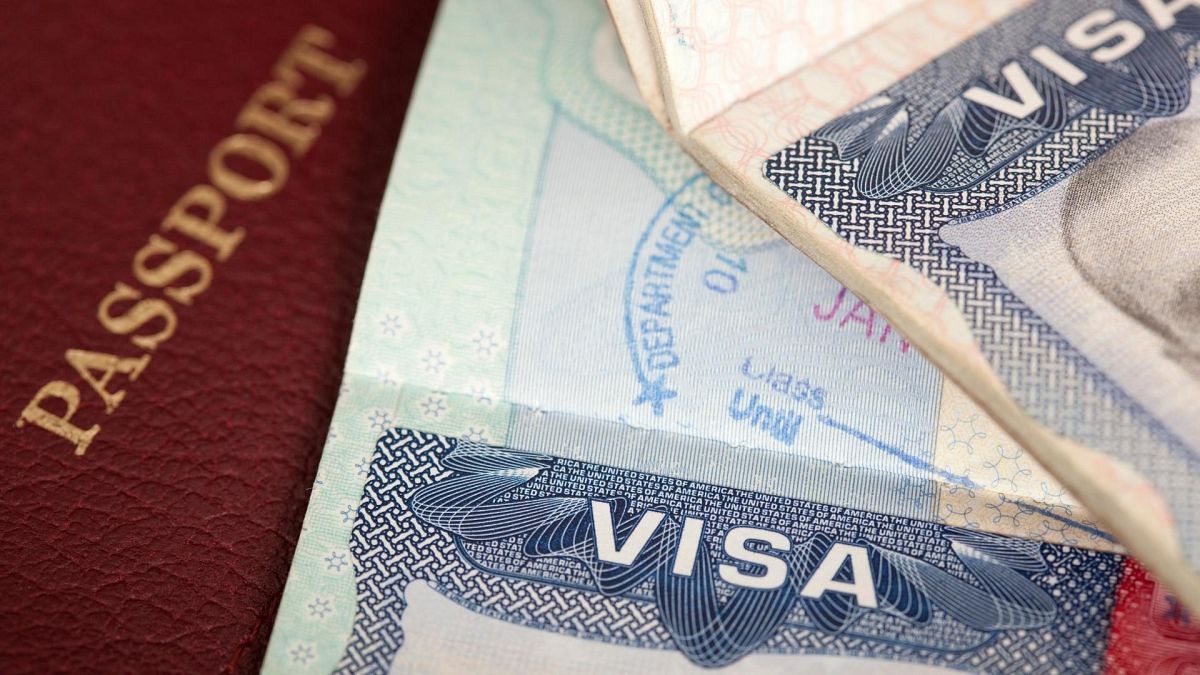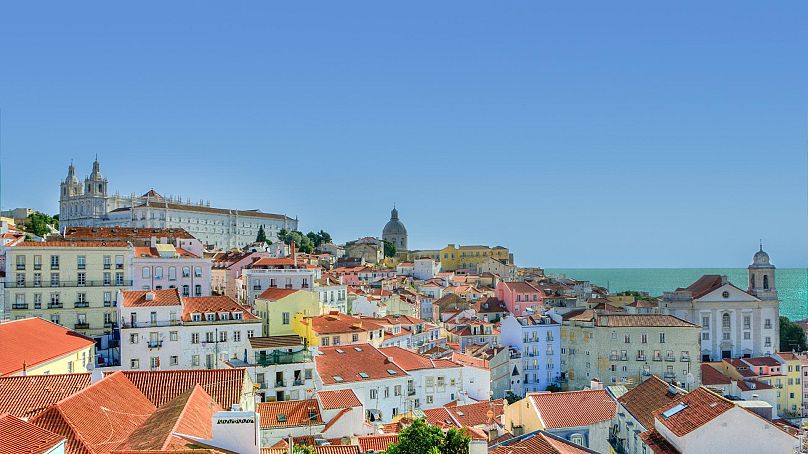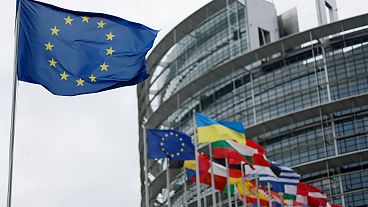With the EU warning against citizenship by investment schemes, Spain's government is looking to pull the plug on golden visas.
Getting the right to live and work in another country can be a long and difficult process. But that’s not always the case for those with money to spend.
Golden visas offer the opportunity for wealthy people to essentially ‘buy’ the right to residency - sometimes without even having to live in the country.
And their popularity in the European Union is growing as people look to move away from political decisions such as Brexit that may limit their rights.
With the unsettled political and social environment in the US in recent years, applications for golden visas from Americans were also projected to increase.
But golden visas are now gradually being phased out across Europe. Portugal amended its scheme in October, removing real estate investment as a basis for golden visa applications in the hope of reducing property speculation.
In the same month, the Netherlands announced it will end its golden visa scheme in January 2024.
Spain has announced plans to follow suit. The country had already proposed toughening the requirements for its golden visa last year, and in December the government's junior coalition partner Sumar voiced support for scrapping the scheme. Now, it is removing the option of investing in real estate in return for a visa.
So what exactly are these golden visa schemes and why has the EU raised questions about their safety in recent years?
What is a golden visa?
Residence by investment schemes, otherwise known as ‘golden visas’, offer people the chance to get a residency permit for a country by purchasing a house there or making a large investment or donation.
Any applicants must be over the age of 18, have a clean criminal record and have sufficient funds to make the required investment.
There are also golden passports, known officially as citizenship by investment programs, that allow foreigners to gain citizenship using the same means.
For countries in the EU, this also means gaining access to many of the benefits of being a resident of the bloc - including free movement between countries.
Why is the EU against golden visas and passports?
In 2022, the European Commission called on EU governments to stop selling citizenship to investors.
Though this is different to golden visas, which offer permanent residency rather than citizenship, the call came as part of a move to crack down on this combined multi-billion euro industry. In the wake of the Ukraine war, there were concerns that these schemes could be a security risk.
Brussels also called for countries to double-check whether people sanctioned due to the war were holding a golden passport or visa that they had issued.
In the past, the EU has also said that schemes of this kind are a risk to security, transparency and the values that underpin the European Union project.
In October 2022, the European Commission urged Albania to "refrain from developing an investors' citizenship scheme (golden passports)". Such a scheme would "pose risks as regards security, money laundering, tax evasion, terrorist financing, corruption and infiltration by organised crime, and would be incompatible with EU norms," it warned in a report. The country has since suspended its plans to introduce a golden visa.
Threats also come from outside the bloc. Also in October 2022, the European Commission proposed a suspension of Vanuatu's visa waiver agreement due to golden passport risks. This is because the scheme enables nationals of third countries to gain Vanuatu citizenship, which then earns them visa-free access to Schengen zone countries.
Which countries have scrapped their golden visa schemes?
In February 2022, the UK government scrapped its golden visa scheme that allowed wealthy foreign nationals to settle in the country in exchange for bringing part of their wealth with them. The decision to end the scheme came as part of a move to clamp down on dirty money from Russia.
In February 2023, Ireland also axed its golden visa scheme - the Immigrant Investor Programme - which offered Irish residence in return for a €500,000 donation or three-year annual €1 million investment in the country.
Ireland had already suspended the scheme for Russian citizens in March 2022 as part of sanctions imposed on the country for the invasion of Ukraine. The following month, the European Parliament warned that the programme was vulnerable to tax abuse. The final decision to end the scheme was the outcome of various international reports and internal reviews.
In February 2023, Portugal's Prime Minister António Costa announced plans to end the country's lucrative residence by investment scheme to tackle property and rent price speculation. Until then, foreigners could either purchase a property or invest some of their wealth into the country - known as capital transfer investments - in exchange for residency.
Between January and August 2022, the program brought almost €398 million to the country, according to Portugal's national news agency LUSA.
**Madeira**opposed the decision to end Portugal's golden visa by real estate, which brought many high-income foreign residents to the autonomous region.
Since 6 October 2023, you are no longer able to apply for a golden visa through a real estate investment in Portugal. The new rules do not apply retroactively to existing visa holders, however.
Which EU countries still offer golden visas and what are the requirements?
There are only a few places that still offer golden passports in the EU. One of these countries is Malta. Here, the minimum investment amount starts at €690,000 and offers citizenship for between 12 and 36 months.
Many others, however, still offer golden visa schemes. Here are a few examples of exactly how much it costs to get residence by investment in these countries.
Does Spain still offer a golden visa?
Spain launched its residence by investment scheme in 2013. It allows wealthy people from outside the EU to obtain residency permits on investing more than €500,000 in real estate or certain types of business.
However, on Monday 8 April, the country's government said it plans to scrap the real estate route.
Socialist Prime Minister Pedro Sánchez said his minority coalition government would study the reform in the weekly Cabinet meeting on Tuesday 9 April.
Speaking on Monday, Sánchez said the reform was part of the government's push to make housing “a right, not a speculative business”.
The government says some 10,000 such visas have been issued since the measure was brought into law in 2013 by a previous right-wing Popular Party government as a means to attract foreign investors.
In May, leader of the centre-left political party Más País Iñigo Errejon, blamed golden visas for a "brutal" increase in house prices that is forcing residents out of their neighbourhoods. Errejon also claimed that the scheme hadn't created many new jobs.
Golden visas are strongly criticised for spurring property price hikes and speculation in the housing sector. Soaring house prices have long been a major problem for many Spaniards, particularly in the country’s major cities.
Renewed support for ending Spain's golden visa scheme came in December from the country's government coalition partner Sumar, which wants to tackle soaring housing prices.
The visa can also be gained by starting certain types of business in Spain, holding company shares or bank deposits with a minimum value of €1 million in Spanish financial institutions, or making a government bonds investment of at least €2 million.
Italy's golden visa scheme
Italy is another popular destination for those looking to get residence by investment. Introduced in 2017, its golden visa grants non-EU nationals a residence permit for two years in exchange for an investment in Italy.
The minimum investment here is €500,000 which must be done through an Italian limited country. Those holding these visas can also include their family in the application and benefit from a special tax regime.
Once those using the scheme have lived in Italy for 10 years, they can be eligible for citizenship.
Greece's golden visa scheme
Greece offers golden visas, with one of the quickest processes for gaining residency. Qualifying foreigners can get a permit within 60 days of applying.
It used to have one of the lowest thresholds for investment at just €250,000 spent on property in the country. In September, the authorities raised this to €500,000 to increase the affordability of real estate for locals. The new threshold applies from 1 May 2023.
This update will be implemented in the Greater Area of Athens, the Municipality of Thessaloniki, and the islands of Mykonos and Santorini but the €250k threshold will remain the same in other regions.
Golden visa holders aren’t required to stay in Greece to keep their visas.
By the end of 2021, the country had seen 9,500 applications for these residence by investment schemes, one of the highest numbers in Europe.





